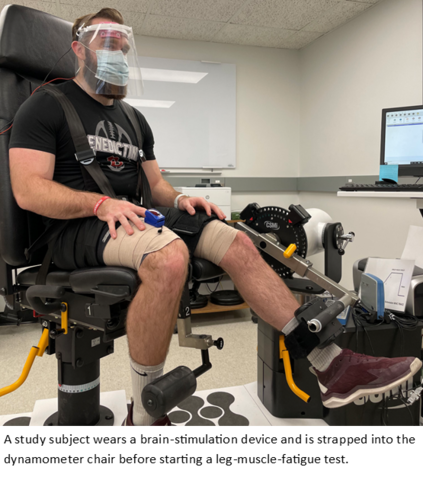
Thorsten Rudroff, PhD, is an Assistant Professor in both the Departments of HHP and Neurology, and the Director of the Integrative Neurophysiology Laboratory. His research is focused on improving physical function in people with multiple sclerosis (MS) and Parkinson’s disease (PD). His research mission is to identify and target the neuromuscular mechanisms of human fatigue and physical disability. Dr. Rudroff’s lab is one of the few in the world to combine Positron Emission Tomography (PET) and transcranial direct current stimulation (tDCS) to investigate muscle and central nervous system activity in healthy and clinical populations. Current projects in his lab include investigations into the effects and mechanisms of different tDCS parameters on fatigue, pain, and motor/cognitive function for healthy and clinical populations. Dr. Rudroff’s lab recently began investigating the underlying mechanisms of post-COVID-19 fatigue via neuroimaging, with the goal of developing effective treatments via non-invasive brain stimulation, which has yielded promising results so far. His lab also studies cannabis use in older people and those with MS, and he’s currently funded by NIH to study cannabis use and fall risk in older adults.
Dr. Rudroff received Master of Science degrees in both Exercise Physiology and Physical Therapy from the University of Cologne, Germany, and he earned his Doctorate in Neurophysiology from the University of Constance. He came to the United States for a postdoctoral fellowship at the University of Colorado, Boulder, and was later hired as an Assistant Professor at Colorado State University. Dr. Rudroff joined the UIowa HHP Department in August, 2018.

Dr. Rudroff’s lab also studies cannabis use in older people and those with MS. His team is currently funded by NIH to study cannabis use and fall risk in older adults. With increased availability and use of cannabis in older adults, he feels a rigorous evaluation of the benefits and risks of cannabis use in this population is necessary. While the benefits of cannabis for medicinal use are emerging (e.g., for chronic pain), the risks for older adults have not been well defined. The aging population is more vulnerable to chronic disease and geriatric conditions, including cognitive impairment and falls, and his team is investigating if cannabis may exacerbate these problems. He feels his cannabis studies can provide critical and timely data regarding the risks and benefits of self-directed medical cannabis use, and help inform clinicians of the need to consider cannabis use when determining fall risk and deciding on fall-prevention strategies.
Dr. Rudroff was born and raised in Germany. He received Master of Science degrees in both Exercise Physiology and Physical Therapy from the University of Cologne, and he later earned his Doctorate in Neurophysiology from the University of Constance. He then came to the United States for a postdoctoral fellowship at the University of Colorado, Boulder, and was later hired as an Assistant Professor at Colorado State University. Dr. Rudroff joined the UIowa HHP Department in August, 2018.
For more information, visit the Integrative Neurophysiology Laboratory website.